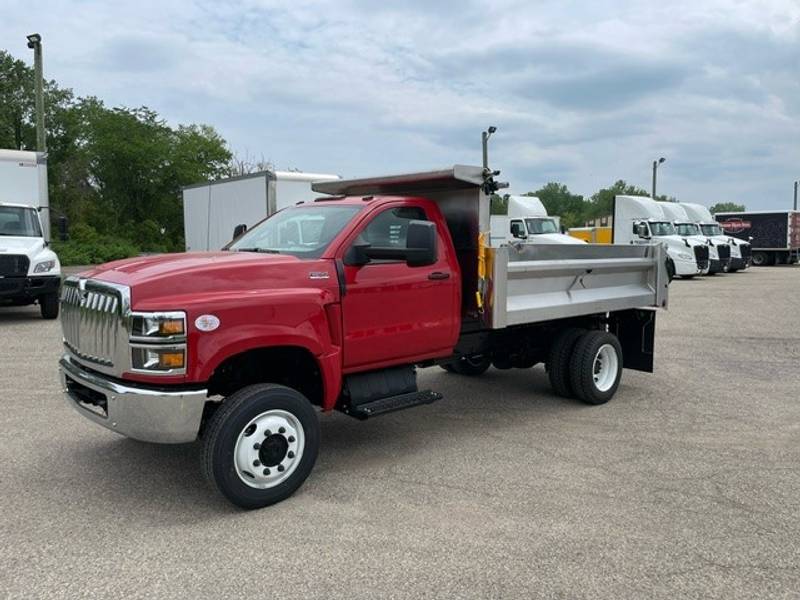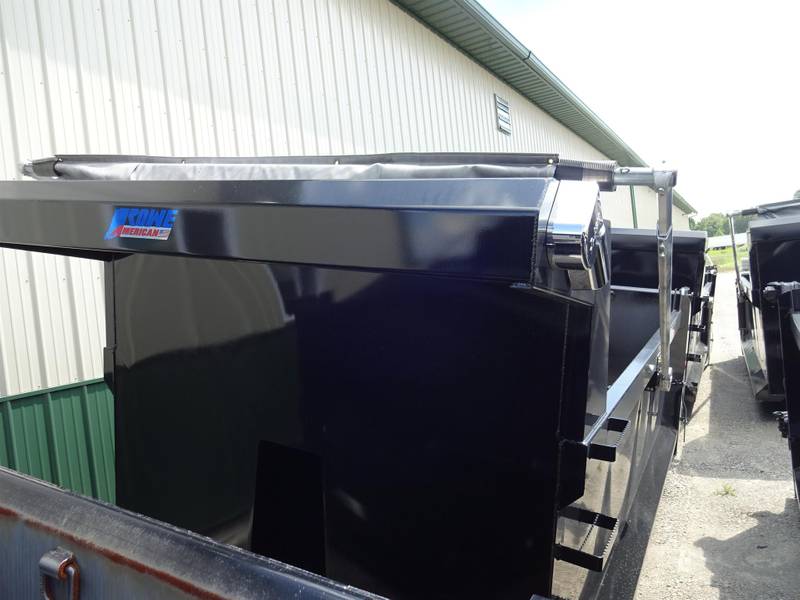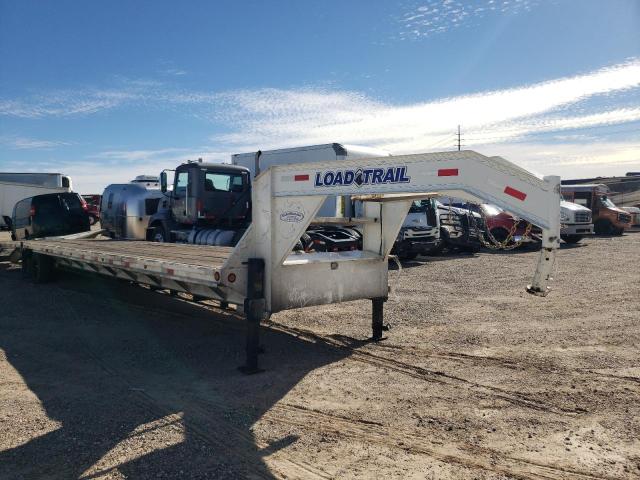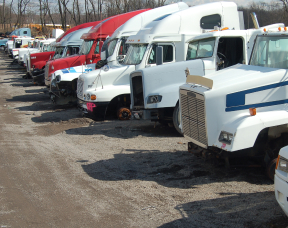Salvage Dump Trucks For Sale: Unearthing Value in Overlooked Giants pickup.truckstrend.com
In the world of heavy machinery, few vehicles are as indispensable as the dump truck. From construction sites and mining operations to landscaping projects and waste management, these robust workhorses are the backbone of industries requiring the efficient transport of bulk materials. However, the price tag for a new or even a standard used dump truck can be prohibitive, often reaching six figures. This is where the often-misunderstood category of "salvage dump trucks for sale" enters the picture, offering a unique opportunity for significant savings, provided you approach the purchase with a strategic and informed mindset.
A salvage dump truck is a vehicle that has been declared a "total loss" by an insurance company. This designation typically arises from incidents such as severe accidents, extensive flood or fire damage, theft recovery (where the cost of repair or recovery exceeds a certain percentage of its value), or even major mechanical failures. While the term "salvage" might conjure images of irredeemable junk, many of these trucks retain substantial value in their components, or can be restored to full working order with the right expertise and investment. For the savvy buyer, a salvage dump truck isn’t just a damaged vehicle; it’s a potential project, a source of vital parts, or a remarkably cost-effective way to acquire heavy-duty hauling capacity.
Salvage Dump Trucks For Sale: Unearthing Value in Overlooked Giants
What Exactly Are Salvage Dump Trucks?
To truly understand the appeal and inherent risks of salvage dump trucks, it’s crucial to grasp their definition beyond a simple "totaled" status. When an insurance company assesses a damaged vehicle, they calculate the cost of repairs versus the vehicle’s actual cash value (ACV). If repair costs, combined with salvage value and other factors, exceed a state-mandated percentage of the ACV (often 70-90%), the vehicle is deemed a total loss and issued a salvage title.
This doesn’t always mean the truck is beyond repair. A dump truck might receive a salvage title for various reasons:
- Collision Damage: Ranging from fender benders to major structural damage.
- Flood Damage: Water ingress can wreak havoc on electrical systems, interiors, and cause long-term corrosion.
- Fire Damage: Can be localized (e.g., engine compartment) or extensive, affecting wiring, hoses, and even structural integrity.
- Theft Recovery: Often minimal physical damage, but may involve tampered ignitions, missing parts, or stripped interiors.
- Vandalism: Cosmetic damage, but can hide deeper issues.
- Mechanical Failure: An engine blow-up or transmission failure might be expensive enough to total a truck, even if the rest of the vehicle is pristine.

The key distinction from a standard used truck is the "salvage title." This legal document signifies its history as a total loss and impacts its resale value and future titling requirements.
Why Consider a Salvage Dump Truck? The Benefits Unpacked

The primary allure of salvage dump trucks lies in their potential for significant financial savings. However, the benefits extend beyond just a lower purchase price:
- Significant Cost Savings: This is undoubtedly the biggest draw. A salvage dump truck can be acquired for a fraction of the cost of a comparable used or new model. This allows businesses with tighter budgets or individuals looking for a project to enter the heavy equipment market more affordably.
- Parts Harvesting: For companies or individuals who already own similar dump trucks, a salvage vehicle can serve as an invaluable donor for expensive parts like engines, transmissions, hydraulic pumps, axles, or even cab components. This can save thousands compared to buying new parts.
- Project Vehicle Potential: If you possess mechanical expertise, have access to skilled labor, or run an in-house repair shop, a salvage truck can be a rewarding project. Restoring a damaged truck can result in a fully functional asset at a fraction of the cost of buying one already operational.
- Environmental Benefit: By purchasing and repairing a salvage truck, you contribute to a more sustainable economy, reducing waste and extending the life cycle of heavy machinery that would otherwise be scrapped.
- Customization Opportunities: A damaged truck offers a blank slate for customization. You can rebuild it to meet specific operational needs, upgrading components or modifying the bodywork as you see fit.

Important Considerations Before Buying
While the benefits are compelling, buying a salvage dump truck is not without its challenges. Due diligence is paramount:
- The Salvage Understand that a salvage title will remain with the vehicle. To legally operate it on public roads, it must typically undergo a rigorous inspection process to be re-titled as "rebuilt" or "reconstructed." This process varies by state and can involve specific safety checks and documentation.
- Extent of Damage: This is the most critical factor. Is the damage cosmetic (body panels, lights), structural (frame, chassis), mechanical (engine, transmission, hydraulics), or electrical? Structural and extensive flood/fire damage are often the most difficult and expensive to repair.
- Repair Costs: Get realistic quotes for parts and labor before you buy. The "savings" can quickly evaporate if repair costs skyrocket. Factor in hidden damage that might not be immediately apparent.
- Hidden Damage: Flood-damaged vehicles, in particular, can harbor insidious long-term problems like corrosion, mold, and intermittent electrical failures that are incredibly difficult to diagnose and repair. Frame damage can also be deceptively complex to fix correctly.
- Availability of Parts: For older or less common makes/models, finding replacement parts can be challenging and expensive. Research part availability before committing.
- Your Expertise and Resources: Do you have the skills, tools, and a reliable network of mechanics or parts suppliers to undertake the repairs? If you’re relying entirely on external shops, costs can escalate quickly.
- Intended Use: Will the truck be used for light hauling on private property, or will it be subjected to daily, heavy-duty commercial work? The required level of repair and reliability will differ significantly.
Where to Find Salvage Dump Trucks for Sale
The market for salvage vehicles is specialized, but accessible:
- Online Salvage Auctions: The most common and extensive sources are platforms like Copart and Insurance Auto Auctions (IAAI). These sites host thousands of salvage vehicles daily, offering detailed photos, vehicle information, and sometimes even inspection reports. You’ll typically need to register and may require a dealer’s license or work through a broker.
- Specialized Salvage Yards/Dealers: Some businesses specialize in buying salvage vehicles, repairing them to a certain extent, and then reselling them. They might offer "rebuilt title" vehicles or "as-is" projects.
- Government Auctions: Occasionally, government agencies or municipalities will auction off surplus or seized vehicles, some of which may have salvage titles.
- Online Marketplaces: Websites like eBay, Craigslist, or Facebook Marketplace can list salvage vehicles from private sellers, though these require extra caution and verification.
The Buying Process: A Step-by-Step Guide
Purchasing a salvage dump truck requires a systematic approach:
- Research & Budgeting: Define your needs (payload, engine size, desired make/model) and set a strict budget that includes the purchase price, transportation, all anticipated repair costs, re-titling fees, and insurance.
- Locate Potential Vehicles: Browse online auctions and other sources. Filter by damage type, location, make, and model. Pay close attention to the provided descriptions and photos.
- Thorough Inspection (Crucial!): This is the single most important step.
- In-Person Inspection: If possible, always inspect the truck in person. Pictures can be deceiving. Bring a flashlight, a magnet (to check for body filler), and even a mechanic if you’re not an expert.
- Check VIN: Verify the VIN on the title matches the vehicle. Run a VIN check report (e.g., CarFax, AutoCheck) for accident history, odometer discrepancies, and previous salvage declarations.
- Assess Damage: Systematically check the frame for bends or cracks, engine and transmission for leaks or visible damage, cab for structural integrity, hydraulic system for the dump bed, and electrical components. Look for signs of water or fire damage (mold, rust, burnt wires, soot).
- Start the Engine (if possible): Listen for unusual noises, check fluid levels, and look for smoke.
- Understand Auction/Seller Terms: Be aware of buyer fees, payment deadlines, "as-is" clauses, and vehicle removal policies. Salvage vehicles are almost always sold "as-is, where-is," meaning no warranties.
- Factor in Transportation: How will you move a potentially non-running or unsafe-to-drive truck from the auction yard to your repair facility? This can be a significant cost.
- Bidding/Negotiation: Stick to your pre-determined maximum budget. It’s easy to get caught up in the bidding process.
- Post-Purchase Steps:
- Secure Transportation: Arrange for pickup.
- Repair and Inspection: Perform all necessary repairs. Document everything with receipts and photos.
- Re-titling: Apply for a rebuilt/reconstructed title with your state’s DMV. This usually requires a safety inspection by state authorities to ensure the vehicle is roadworthy.
- Insurance: Obtain proper commercial insurance for your newly repaired and re-titled dump truck.
Types of Damage and Their Implications
Understanding the nature of the damage helps in assessing feasibility:
- Collision Damage: Can range from minor bodywork (fenders, lights, bumpers) to severe structural frame damage. Frame damage is complex and expensive to repair properly, often requiring specialized equipment.
- Flood Damage: The most problematic. Water can cause immediate electrical shorts and long-term corrosion in critical components, leading to intermittent failures, mold, and persistent odors. Often not recommended unless the water level was extremely low.
- Fire Damage: Can be localized (e.g., engine compartment) or affect the entire cab. Fire compromises wiring, hoses, seals, and can even weaken structural steel. Assess the extent carefully.
- Theft Recovery: Often involves damage to the ignition, steering column, or missing interior/exterior components. Can be a good source if damage is minimal and parts are easily replaceable.
- Mechanical/Engine Failure: A blown engine or transmission can be costly, but if the rest of the truck is solid, replacing the drivetrain might still be cheaper than buying a fully functional used truck.
Maximizing Your Investment: Tips for Success
- Do Your Homework: Research common issues for the specific make/model you’re considering.
- Get a Professional Opinion: If you’re serious about a truck, invest in a pre-purchase inspection by a qualified heavy equipment mechanic.
- Account for All Costs: Don’t just budget for the purchase price. Think about transportation, parts, labor, re-titling fees, and potential unexpected issues.
- Be Patient: The perfect deal might not appear overnight. Don’t rush into a purchase.
- Know Your Limits: If you lack the mechanical skills or resources, a heavily damaged salvage truck can quickly become a money pit.
- Network: Connect with local salvage yards, parts suppliers, and heavy equipment mechanics. They can be invaluable resources.
Estimated Salvage Dump Truck Price Guide (Examples)
Please note: These are estimated ranges and actual prices fluctuate wildly based on make, model, year, specific damage, location, and market demand. Always conduct thorough research for current market values.
| Damage Level | Estimated Repair Cost (USD) | Salvage Purchase Price Range (USD) | Notes / Factors Affecting Price |
|---|---|---|---|
| Light Cosmetic | $2,000 – $8,000 | $5,000 – $15,000 | Dents, scratches, broken lights, minor body panel damage. Often runs and drives. Ideal for quick flip or low-cost entry. |
| Moderate Collision | $10,000 – $30,000 | $8,000 – $25,000 | Moderate body damage, some suspension/axle issues, minor frame tweak. Engine/transmission often intact. Requires more skilled repair. |
| Heavy Mechanical/Engine | $15,000 – $40,000+ | $7,000 – $20,000 | Blown engine, transmission failure, major hydraulic issues. Body often good. Price depends on engine type and availability of used parts. |
| Heavy Structural | $30,000 – $60,000+ | $5,000 – $15,000 | Significant frame damage, major cab distortion. Very complex and expensive to repair. Often considered for parts only. |
| Flood/Fire (Moderate) | $20,000 – $50,000+ | $3,000 – $10,000 | Extensive electrical damage, interior damage, potential for long-term corrosion. High risk, often only for parts or specialized repair. |
| Parts Only | N/A (Total Loss) | $1,000 – $7,000 | Severely damaged beyond economical repair. Purchased solely for valuable components like engine, transmission, axles, hoist. |
Frequently Asked Questions (FAQ)
Q1: What’s the difference between a salvage title and a rebuilt title?
A1: A salvage title indicates the vehicle has been declared a total loss by an insurance company. A rebuilt title (or "reconstructed title") is issued after a salvage vehicle has been repaired, inspected by state authorities, and deemed safe and roadworthy. It signifies that the vehicle was once salvage but has been restored.
Q2: Can I get insurance for a salvage dump truck?
A2: Once a salvage dump truck has been repaired and re-titled as "rebuilt" or "reconstructed," you can generally obtain insurance. However, some insurers may charge higher premiums, or offer less comprehensive coverage, especially if the vehicle has a history of significant damage. It’s crucial to check with your insurance provider beforehand.
Q3: Is it hard to re-title a salvage dump truck?
A3: The process varies significantly by state, but it generally involves submitting proof of repairs (receipts for parts, labor), passing a state-mandated safety inspection, and sometimes a visual inspection by law enforcement or DMV officials to verify the VIN and ensure the repairs meet safety standards. It can be a complex and time-consuming process.
Q4: Are salvage dump trucks reliable after repair?
A4: Their reliability depends entirely on the quality of the repairs and the extent of the original damage. A professionally repaired salvage truck, especially one with primarily cosmetic damage, can be just as reliable as a standard used truck. However, a poorly repaired vehicle or one with extensive structural/flood damage may have ongoing issues.
Q5: What’s the biggest risk when buying a salvage dump truck?
A5: The biggest risk is underestimating the true cost of repairs, especially for hidden damage (e.g., frame issues, internal engine problems, or long-term electrical issues from water damage). Without a thorough inspection, you could end up with a money pit.
Q6: Can I finance a salvage dump truck?
A6: It is generally very difficult, if not impossible, to obtain traditional financing for a vehicle with a salvage title. Lenders view them as too high a risk. Once the vehicle has been repaired and re-titled as "rebuilt," financing options may become available, but they could still be limited compared to a clean-title vehicle. Most salvage purchases are cash-only.
Q7: How much can I save by buying a salvage dump truck?
A7: Savings can range from 20% to 70% or more compared to a similar clean-title used dump truck, depending on the severity of the damage and your ability to perform repairs cost-effectively. The greatest savings are often realized by those who can do most of the repair work themselves or source parts economically.
Conclusion
The market for salvage dump trucks for sale presents a compelling opportunity for those in need of heavy-duty hauling capabilities without the hefty price tag. For the well-informed buyer, these "totaled" giants can be transformed into valuable assets, whether as a fully restored workhorse, a reliable parts donor, or a challenging yet rewarding project vehicle.
However, success in this niche market hinges entirely on meticulous research, a thorough understanding of the vehicle’s damage, realistic cost assessments, and often, a good dose of mechanical expertise. By approaching the purchase with caution, diligence, and a clear strategy, you can unlock significant value and drive away with a powerful asset that might have otherwise been overlooked. For the right buyer, a salvage dump truck isn’t just a vehicle with a past; it’s a future waiting to be rebuilt.



